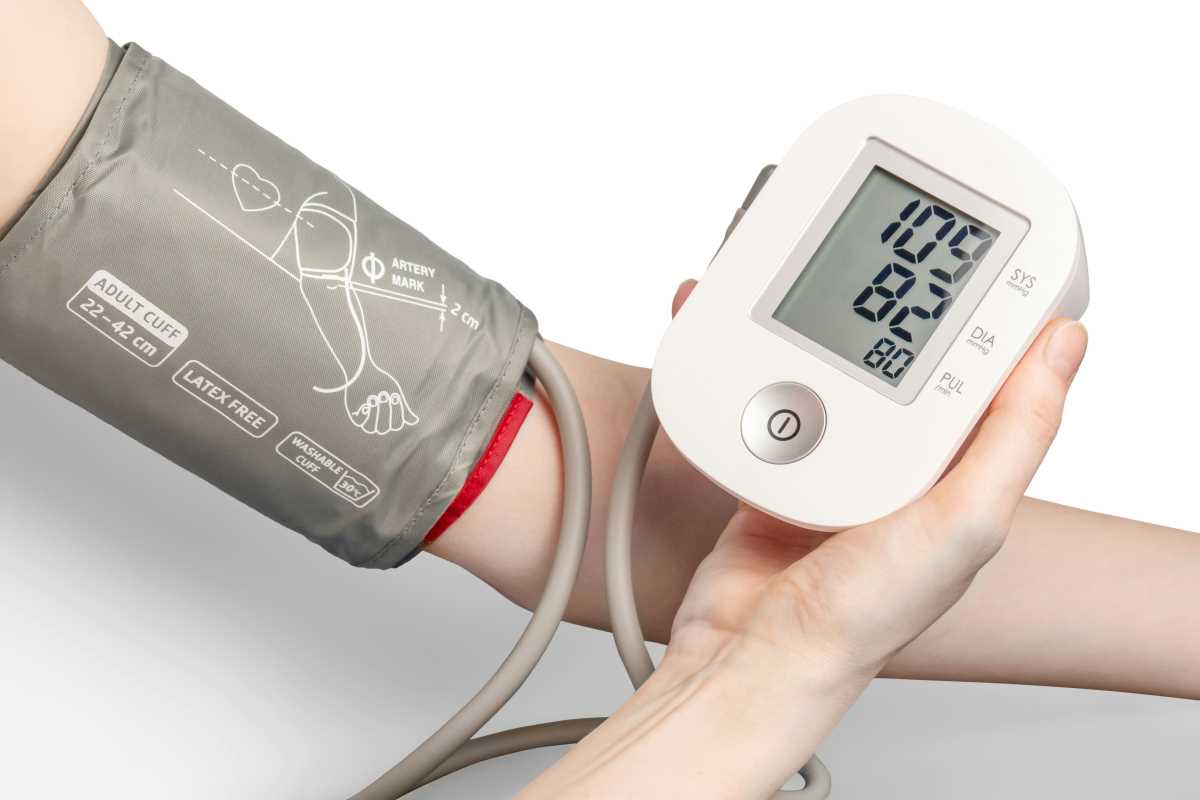Feeling like your energy gauge is perpetually stuck on low? Chronic fatigue can turn even the simplest tasks into epic struggles, leaving you reaching for caffeine, sugar, or whatever snack promises a quick energy fix. It’s frustrating, to say the least.
But before you settle into a relationship with your third cup of coffee for the day, know this: the secret to combating chronic fatigue often lies on your plate. By balancing your diet and fueling your body with the right nutrients, you can reclaim energy and kick constant exhaustion to the curb. Here’s how to eat your way toward a revitalized you.
Giving Complex Carbs the Spotlight
First things first, carbs are not the enemy. But not all carbs are created equal. If simple carbs (like pastries and sugary cereals) are a short-lived firecracker, complex carbs are the slow-burning candle you didn’t know you needed. They provide a steady supply of energy throughout the day, instead of delivering a quick spike followed by an inevitable crash.
The magic here lies in fiber. Foods like whole-grain bread, quinoa, and sweet potatoes are loaded with fiber, which slows the absorption of sugar into your bloodstream. This keeps energy levels stable without making you feel like napping under your desk an hour later.
Oats, in particular, are morning heroes. A bowl of steel-cut oatmeal topped with berries and a dollop of almond butter is practically a breakfast pep talk in edible form. If you’re more into savory, avocado toast on whole-grain bread is a surefire way to keep your mood and energy balanced.
And don’t underestimate legumes. Lentils, chickpeas, and black beans not only offer complex carbs but are also rich in protein, making them a two-for-one energy booster. Add them to soups, salads, or even make a lentil curry for a hearty meal that feels like a warm hug.
A pantry carb makeover might include:
- Switching white rice for quinoa or farro
- Choosing whole-grain bread, wraps, or pasta over refined versions
- Keeping roasted sweet potato cubes on hand for quick sides
By handing carbs the respect they deserve (and avoiding the processed stuff), you’re giving your body the sustainable energy it craves.
Powering Up with Protein
Protein isn’t just for gym-goers and bodybuilders. It’s your all-star teammate for combating chronic fatigue, thanks to its ability to stabilize blood sugars and keep hunger at bay. Feeling endlessly tired? You might not be getting enough protein in your meals.
Lean meats like chicken, turkey, and lean beef are classics, but don’t overlook plant-based options like tofu, tempeh, and edamame. These are rich in protein, easy to prepare, and don’t come with the heavy post-meal lull some experience with red meat.
Eggs are another protein marvel. Scrambled, poached, or boiled, their portability and versatility mean they’re useful for breakfast, lunch, or even snacks. Pair boiled eggs with a piece of whole-grain toast, and you’ve got a combo that’s practically fatigue-proof.
Greek yogurt is also worth celebrating. High in protein and low in sugar (if you pick the plain kind), it’s an excellent base for fruit parfaits or savory dips. Keep a tub in your fridge and feel a little less reliant on vending machine snacks when hunger strikes.
And don’t forget seafood. Fatty fish like salmon and tuna come with a double whammy of protein and omega-3 fatty acids, which support brain function and fight inflammation, two aspects that could stand improvement in the world of chronic fatigue.
Simple ways to sneak in more protein:
- Toss some chickpeas or grilled chicken into your salads
- Add protein powder to your morning smoothie
- Snack on roasted edamame or almonds to keep energy dips at bay
Balancing your protein intake across meals ensures your battery doesn’t mysteriously drain halfway through the day.
Hydration That Goes Beyond Water
Fun fact: even mild dehydration can make you feel sluggish. But here’s the twist, not all hydration has to come from guzzling plain water. While H2O should absolutely play a starring role in your day, other hydrating options can add both variety and energy-boosting nutrients.
Herbal teas, like chamomile or peppermint, hydrate while offering calming benefits. If plain water feels uninspiring, try infusing it with slices of cucumber, lemon, or berries for a hint of flavor that keeps you reaching for your glass.
Coconut water, unflavored and unsweetened, is another great choice. It’s naturally rich in electrolytes like potassium, making it perfect for replenishing fluid levels when you’re feeling drained.
Hydrating fruits and vegetables also sneak water into your system. Watermelon, cucumbers, celery, and citrus fruits are refreshing, nutrient-packed options that can quietly contribute to your daily hydration goals. Alternatively, soups and broths bring hydration and comfort on days when energy is at an all-time low.
Electrolytes matter too. Low sodium (in moderation), magnesium, and potassium help balance your fluid levels and optimize energy use. That’s why even a banana can feel like a quick pick-me-up during mid-afternoon slumps.
Ideas for a hydration boost include:
- Keeping a mix of teas on hand for hydrating variety
- Snacking on fruits high in water content, like oranges or grapes
- Guzzling water but making it fun with fruit infusions or festive ice cubes
Proper hydration is like engine oil for your body; it doesn’t just fuel your day, it keeps everything running smoothly.
Fats That Work for You
Fat sometimes gets a bad rap, but not all fats are created equal. Healthy fats are a crucial component of a fatigue-fighting diet, providing a longer-lasting energy source and supporting overall brain function.
Nuts and seeds are tiny powerhouses packed with healthy fats. Almonds, walnuts, chia seeds, and flaxseeds are perfect for sprinkling on foods, adding texture, and providing a steady stream of energy.
Avocados are another star. Whether mashed on toast or sliced into salads, they deliver monounsaturated fats along with vitamins like B6, which plays a role in energy metabolism.
Fatty fish truly goes above and beyond. Not only do salmon and mackerel provide omega-3 fatty acids, but they also help reduce inflammation, an underlying factor that can worsen chronic fatigue. Grilling or baking these fish with herbs and olive oil makes for an energy-packed meal that’s surprisingly easy to prepare.
And of course, there’s olive oil. A drizzle over roasted veggies or a salad dressing base can enhance the taste and health benefits of your dishes.
What’s in a good fat arsenal?
- Packs of mixed nuts for snagging on the go
- A jar of nut butter for spreading on apple slices or whole-grain crackers
- Flax or chia seeds for quick additions to smoothies or yogurt
Healthy fats help you feel fuller longer while giving your energy levels a serious upgrade.
The Magic of Micronutrients
Last but definitely not least, micronutrients are the unsung heroes of a fatigue-fighting diet. These vitamins and minerals don’t just sit there; they actively contribute to processes like energy production and cell repair.
Magnesium is a big player. Found in leafy greens like spinach, almonds, and even dark chocolate, this mineral supports energy production and muscle function. Feel like you’re hitting the mid-afternoon wall? Grab a square (or two) of high-quality dark chocolate for a magnesium-rich pick-me-up.
Iron is equally critical. If iron levels are low, it’s like your body’s energy pipelines are clogged, leading to fatigue and brain fog. Incorporate beans, lean meats, tofu, and spinach to boost those reserves.
Vitamin B12 might as well wear a cape for its role in energy metabolism. While it’s primarily found in animal products like eggs and milk, fortified plant-based foods can bridge the gap for vegetarians or vegans.
Then there’s vitamin D, which surprisingly impacts energy despite being primarily known for bone health. Sun exposure is the simplest way to top up, but foods like salmon and fortified orange juices are excellent supports.
Micronutrient-packed options for tired days:
- Enjoy spinach-stuffed omelets with shredded cheese
- Opt for fortified cereals or plant-based milks
- Use sunflower seeds as a crunchy topping to both salads and stir-fries
Your body might not send you a thank-you note immediately, but trust us, it’s plotting a comeback.
A Balanced Approach to Energy
Tackling chronic fatigue doesn’t require a magic potion or complex regime. A balanced diet that prioritizes whole, nutrient-dense foods will do the trick. By incorporating complex carbs, lean protein, healthy fats, proper hydration, and essential micronutrients, you create a formula that nourishes your body from head to toe.







